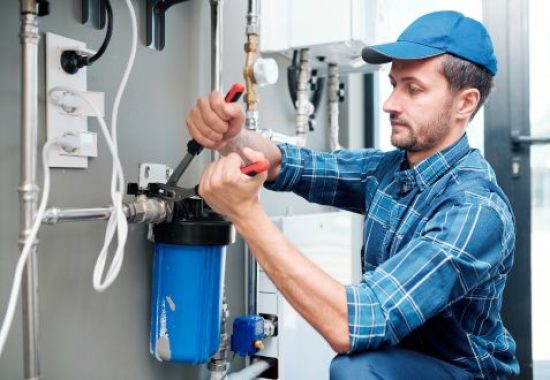
As the UK grapples with economic uncertainties and a shifting job market, many people are considering career changes that offer stability and growth potential. As an essential trade that has weathered countless economic storms, plumbing is emerging as an attractive option. But what do you need to know about getting started in this trade?
Below, we outline the path to retraining as a plumber in the UK.
For those beginning from scratch, a common route is to enrol in a vocational training programme or pursue an apprenticeship. These pathways often lead to a National Vocational Qualification (NVQ) Level 2 or 3 in plumbing, which is widely recognised in the industry.
Apprenticeships are particularly valuable as they provide hands-on experience while earning a wage. Importantly, there’s no upper age limit for apprenticeships, making them accessible to career changers of all ages.
For those who prefer a faster route, some training centres provide intensive courses that can be completed in a matter of months. Just ensure any course you choose is accredited and recognised by industry bodies such as the Chartered Institute of Plumbing and Heating Engineering (CIPHE).
Plumbing is a versatile trade that requires a deep understanding of diverse areas, from installing modern bathroom suites to fitting hot water cylinder spares. While qualifications are essential, practical experience is equally important in this trade. Many employers value hands-on skills and the ability to work efficiently in real-world situations.
For those undertaking an apprenticeship, experience is built into the programme. However, if you’re not on an apprenticeship scheme, there are other ways to get some skin in the game.
Consider seeking volunteer opportunities or internships with established plumbing companies. Even if these positions are unpaid or come with minimal compensation, the on-the-job insights and networking opportunities can be invaluable.
Once you’ve gained the necessary qualifications and experience, you might want to establish a plumbing business. This path has the potential for higher earnings and greater flexibility, but it also comes with additional responsibilities.
Before taking the leap, it’s advisable to work for an established company for a few years to build your skills, understand the business side of plumbing, and develop a network of contacts. When you’re ready to start your business, it’s worth specialising in a particular area of plumbing, such as eco-friendly installations or emergency repairs, which can help you differentiate yourself in the market.